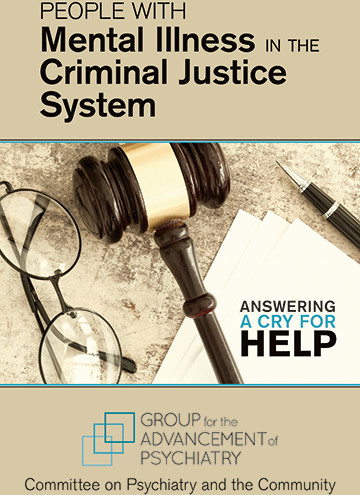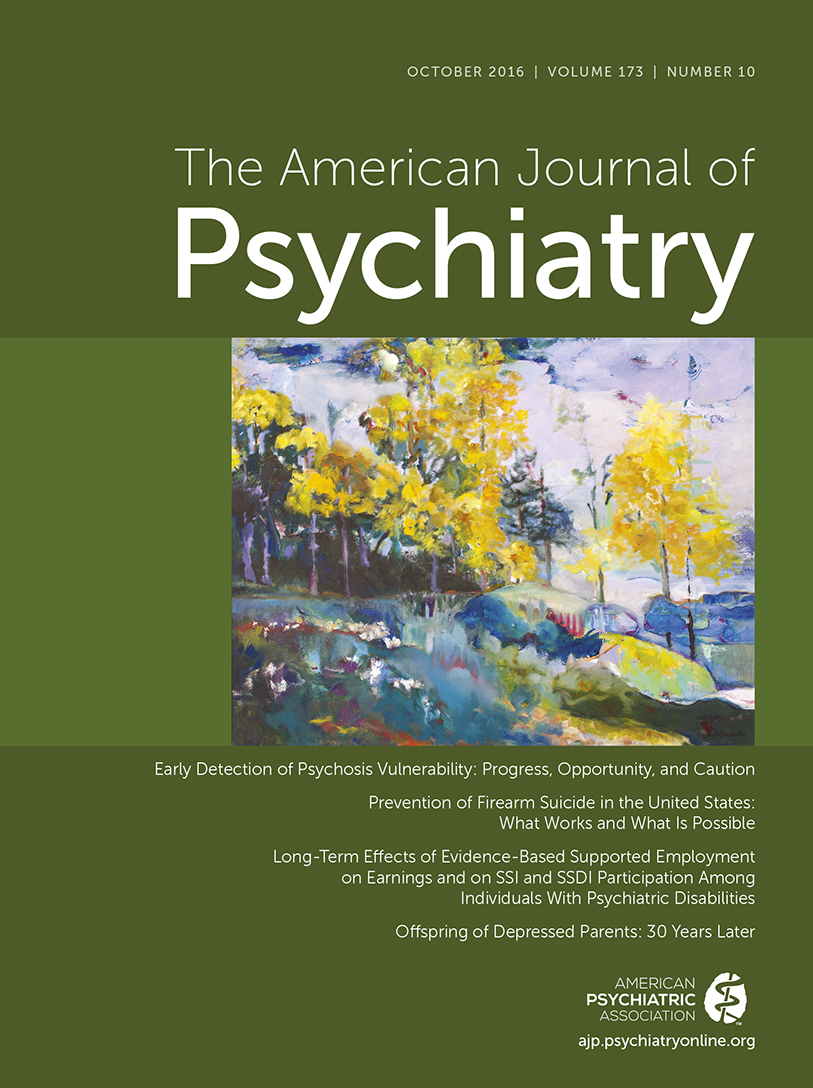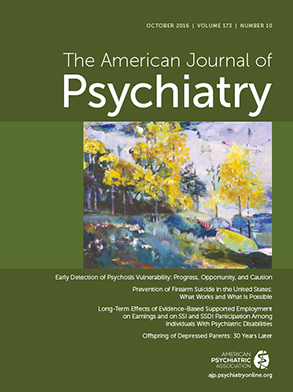According to the U.S. Bureau of Justice Statistics, more than 2.2 million adults were incarcerated in U.S. federal and state prisons and in county jails in 2013 (
1). The number of incarcerated Americans has risen dramatically since 1980, largely due to “tough on crime” laws. In addition to the rising number of incarcerated individuals, the percentage of inmates with mental illness has been steadily increasing, with rates more than quadrupling from 1998 to 2006 (
2). Many have attributed this trend to the deinstitutionalization of mentally ill persons beginning in the 1960s, when mental hospitals across the country began closing their doors. It is estimated that more than two million arrests in the United States each year involve people with serious mental illness, and on any given day in the United States, there are approximately 550,000 people with serious mental illness in our jails and prisons.
Jails and prisons have become places where a disproportionate number of people with mental illness and co-occurring substance use disorders spend significant amounts of time—their ties to the community severed, their treatment needs unmet, and their illnesses made worse. Upon release, many individuals have limited to no access to the types of services and supports necessary to facilitate community reentry and reintegration. In my role as chief of psychiatry in the Colorado Department of Corrections, I am all too familiar with the growing number of mentally ill offenders in our state and the complicated processes that put them there and that act as barriers to effective treatment and transitioning back into the community.
Written by a committee of the Group for the Advancement of Psychiatry, People With Mental Illness in the Criminal Justice System: Answering a Cry for Help represents the collective wisdom of leaders in community psychiatry to help psychiatrists identify successful strategies to aid individuals and families with behavioral health needs in the criminal justice system with the overall goal of reducing the overrepresentation of mentally ill persons behind bars. The book uses a collection of Dear Abby letters from individuals and family members who have personal experience with the intersection of mental illness and the criminal justice system. These poignant letters provide real stories of the challenges faced not only by mentally ill individuals and their family members but also by professionals involved in all aspects of this system, and the letters are used to highlight the failings of the intersection of our mental health and criminal justice systems.
The chapters are organized mostly according to the sequential intercept model, showing how important intervention can be along any of the multiple stops an individual makes within the criminal justice system. The authors encourage development of collaborative partnerships throughout the criminal justice system: partnerships between families, law enforcement, community and correctional mental health providers, judges, and the court system.
One of the major themes of the book is that many, if not most, of the people with mental illness in our nation’s jails and prisons are there as a result of inadequate access to treatment services in the community. These individuals highlight the need for trauma-informed care for this population and for awareness of co-occurring substance use disorders, learning disorders, and health conditions that must be recognized and treated. While delivering a message of optimism and encouragement, the authors point out important gaps in service, particularly during the transition from incarceration to the community and the importance of working toward integrated community-based care for these individuals. In addition to improved treatment services in the community, the book makes recommendations for jail diversion programs at the time of arrest through judicially supervised community-based treatment plans. There are also important discussions about improving training for police and parole officers who work with mentally ill individuals and about improved treatment and conditions within the correctional environment.
At the end of each of the short, accessible chapters are simple, bullet-point recommendations for change to encourage more outreach and collaboration among those who work with mentally ill individuals in the criminal justice system. Helpful examples of dialogue are provided to promote this collaboration in a practical and real-world fashion. An extensive set of appendices presents information for professionals on a variety of important topics, including principles for criminal justice and community psychiatry, sequential intercept mapping, stages of engagement with the criminal justice system, regulations concerning the Health Insurance Portability and Accountability Act of 1996, screening and mental status or criminal justice history, essential systems of care, and the risk-need-responsivity model. There is also a section of online criminal justice and mental health resources that provide additional information and assistance for individuals, families, and clinicians.
The overall message of the book is that effective partnerships among treating psychiatrists and other mental health professionals, law enforcement, judges, and our patients and their families can have an enormous impact in reducing the overrepresentation of persons with mental illness in our jails and prisons. As stated in this book, “There is something terribly wrong with a society that is willing to spend more money to incarcerate people with mental illnesses than to treat them” (p.xii). I hope that mental health providers in the community, as well as individuals involved in our legal and correctional systems, will pick up this accessible and engaging book and begin the process of examining what each of us can do to reverse this disturbing trend.


